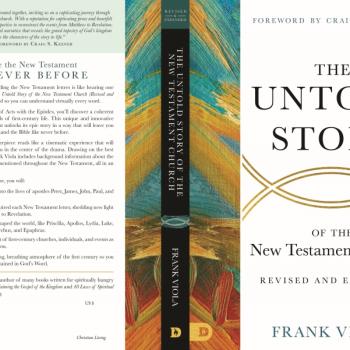This points to the third function of money for us. Beyond its usefulness as a medium of exchange and a storehouse of value, money has become our most important "reality symbol." Money is one of our favorite ways to try to accumulate a feeling of being, to gain a sense of solid identity, and to cope with the gnawing intuition that we do not really exist. Suspecting that our sense of self is groundless, we used to visit temples and churches to ground ourselves in a relationship with the Divine. Now we struggle to ground ourselves financially.
Needless to say, there is a karmic rebound. The more we value money, the more we find it used -- and the more we use it ourselves -- to evaluate us. We end up being manipulated by the symbol we take so seriously. In this sense, the problem is not that we are too materialistic but that we are not materialistic enough, because we are too preoccupied with the symbolism. I become infatuated not so much with the things that money can buy, as with their power and status -- not with the usefulness of an expensive car but with what owning a Lexus says about me. "I am the kind of guy who drives a Lexus, owns a condo on Maui, and has a stock portfolio worth a million bucks ..."
It's a classic example of "binding ourselves without a rope," to use the Zen metaphor. We are trapped by and in our ways of thinking about money.
The basic difficulty, from a Buddhist perspective, is that we are trying to resolve a spiritual problem -- our "emptiness" -- by identifying with something outside ourselves, something that can never confer the sense of reality we crave. We work hard to acquire a big bank account and all the things that society teaches us will make us happy, and then we cannot understand why they do not make us happy, why they do not resolve our sense that something is lacking. The reason must be that we don't have enough yet.
I think that Buddhism gives us the best metaphor to understand money: shunyata, the "emptiness" that characterizes all phenomena, according to Mahayana. Nagarjuna warned that there is no such thing as shunyata: it is a way to describe the interdependence of things, how nothing self-exists because everything is part of everything else. But if we misunderstand the concept and cling to shunyata, the cure becomes worse than the disease. Money -- also nothing in itself, also nothing more than a socially agreed-upon symbol -- remains indispensable today. But woe to those who grab this snake by the wrong end. As the Heart Sutra puts it, all form is empty, yet there is no emptiness apart from form. Clinging to money is getting fixated on something that has no meaning in itself, apart from the forms it takes.
Another way to make this point is that money is not a thing but a process. Perhaps it's best understood as an energy that is not really yours or mine. Those who understand that it is an empty, formless symbol can use it wisely and compassionately to reduce the world's suffering. Those who use it to become more "real" end up being used by it, their alienated sense of self clutching a blank check -- a promissory note that can never be cashed.
David Loy is Besl Professor of Ethics/Religion and Society at Xavier University in Cincinnati. His work is primarily in comparative philosophy and religion, particularly comparing Buddhist with modern Western thought. His many books include The Great Awakening: A Buddhist Social Theory, and Money, Sex, War, Karma: Notes for a Buddhist Revolution. A Zen practitioner for many years, he is qualified as a teacher in the Sanbo Kyodan tradition of Japanese Buddhism.




